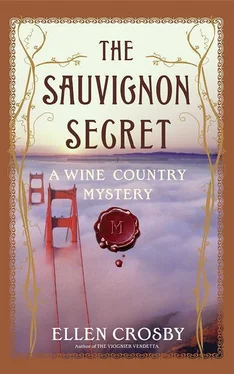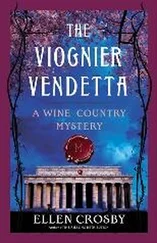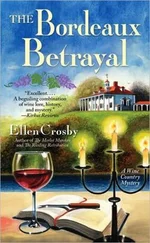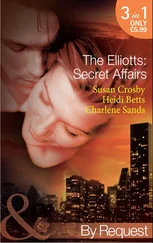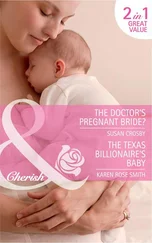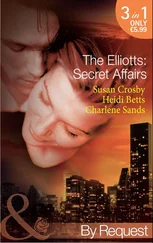“ ‘Weaponizing’ it?” I said, stunned. “Charles’s group was working on developing an anthrax bomb?”
“A bomb is one way to do it, but there are others,” he said. “His gang was working the other side of the coin, ways to neutralize it—trying to improve the anthrax vaccine we developed during the war. Before Nixon shut everything down, the biowarfare crowd tested more than twenty strains of the anthrax bacterium trying to determine which were the deadliest. Then they’d stage mock attacks, see how far it could spread, that kind of thing. What they found out was that it could spread pretty damn far, maybe even as deadly as a nuclear blast. As a result they wanted a better, more effective vaccine.”
Mock attacks with anthrax that had the devastating potential of another Hiroshima or Nagasaki. I shuddered. “How did you know what they were doing?”
Noah gave me a long look that made me wish I hadn’t asked. “I worked as a researcher for the public health service. Our mandate was different. We were working to save lives from some of the worst, most wretched diseases in the world. Those guys were military. What they developed were new and creative ways to use bacteria, germs, chemicals, things in nature, or stuff they created in test tubes as weapons. It was a different mission.” He paused. “Of course we had our ethical lapses, too. Things we did in the name of research.”
He pressed his lips together and fingered the leaves on a small pink dogwood. I wondered how much his old ghosts still haunted him, what his involvement had been in the experiments where people had been infected unknowingly or against their will.
“The world’s such a scary place now,” I said. “You try not to think about it, but it’s always on the news or they ratchet up the terrorism level at the airport or someone puts a bomb in some clever new place. Why did we have to weaponize anthrax to begin with? Look at that sick person who sent it through the mail and killed those postal workers in Washington after 9/11. All it takes is some lunatic with a test tube and a grudge—”
Noah scuffed a toe of his work boot, digging a small hole in the dirt. “Lucie, you can find anthrax bacteria living in the soil naturally—you don’t always need a test tube and a lab. Not everywhere, mind you. But it’s out there and it’s part of nature. And a smart scientist could replicate it without too much trouble.”
“Please tell me you’re not serious.”
“’Fraid so.” He finished the last of his coffee and crushed the cardboard cup with his big hands. “You use Bacillus thuringiensis on your grapes. I know you do since you buy it from me.”
“We try. It doesn’t do much against some pests, so we resort to the more toxic sprays, unfortunately.”
“You know Bt comes from the same family of bacteria that causes anthrax, don’t you?” he said.
“That’s right, it does.” I stared at him. “Oh, come on, Noah! You’re not saying someone could take Bt and produce anthrax by making it … what’s the term … mutate?”
“So far that’s never happened, either in a lab or in nature. But with modern technology and a bit of luck, you could take the toxinproducing genes from anthrax and transfer them into Bt. So you’d get a Bt that could cause anthrax.”
“Surely that’s not very easy.”
“Not for your average bear, no. But a scientist who knew what he was doing could find the necessary gene sequences on the Internet and reproduce them in the laboratory. It’s a fairly common way to study genes and it should work just as well with toxin genes. You use short segments of a strand of DNA called oligonucleotide primers to replicate the gene from a fragment.” He shrugged. “Order the primers online and do a PCR—sorry, polymerase chain reaction— meaning you make more of it. Then you clone those genes into a plasmid, put it in Bt, and voilà, you’ve got Bt that could be as lethal as anthrax.”
“Maggie and the scientists she worked with were replicating anthrax bacteria?” I asked. “Making it multiply?”
“Let’s just leave it that they understood the process.” He folded his arms across his chest to let me know that was all he planned to say.
“All right, whatever they did or didn’t do, they needed animals or, better still, humans who were infected in order to test the vaccine. Or they themselves needed to infect rats or sheep or people since anthrax isn’t one of those diseases with a long survival rate where you can round up a test group.”
“It’s true you need to do field tests to find out if something is effective or not.”
Had Stephen Falcone died from coming in contact with anthrax because he’d agreed to be tested for the vaccine? How could he have understood what he’d agreed to do?
“Isn’t that incredibly risky, if we’re talking about real people? Not to mention life-threatening for anyone who volunteers?”
“Of course it’s risky, but the point is to administer the vaccine quickly enough for it to be effective.”
“And how fast is ‘quickly enough’?” I asked. “Did they also experiment to see how long they could wait before it was too late?”
Noah’s face darkened. “Sorry, Lucie, we really have reached the end of the line about what I can discuss.”
We stared at each other.
“What do they call that?” I said. “A nondenial denial?”
“I’ll walk you back to the parking lot.” He wasn’t going to back down.
I shrugged. “Okay. Thanks for your time.”
“I’ve got one final question for you,” he said. “About Maggie. The newspapers reported exactly what you said Charles told you— the car she was driving went off a bridge into the water off Pontiac Island. She’d been drinking and she shouldn’t have been behind the wheel.”
“That’s right.” We’d already discussed this.
“It wasn’t her car. Couldn’t have been,” he said. “Didn’t Charles ever mention that Maggie didn’t drive, didn’t know how to, didn’t have a license because she grew up in Manhattan?”
“No.”
“Well, there’s your problem right there.” Noah made a clicking sound of disapproval with his tongue. “You ask me, someone else had to be in the car with her that night, even if the police never found any evidence to prove it—the car’d been underwater for hours, anyway. She didn’t drive off the bridge herself because she was too drunk. I think the driver managed to escape but left her there and she died. Either he or she was too scared to report what happened, too drunk, or it was deliberate. Jealousy can be a powerful motivator, my dear, enough to make someone take leave of his senses if he’d been drinking. Wouldn’t be the first time a person was pushed too far when there was a love triangle.” He broke a small dead branch off the dogwood.
I felt like he’d knocked the wind out of me. “You think it was Charles?”
“I don’t know. Maybe she did get in that car and take off. We’re talking about a semiprivate island, not the streets of D.C. The police never charged Charles with anything, so I could be all wet. Or maybe I’m right and Charles Thiessman got away with that, too. I told you, Lucie. The guy is made of Teflon.”
I headed through the now-busy parking lot and thought about what Noah had said—or implied. If Maggie’s death wasn’t an accident, Noah seemed to believe the love triangle among her, Theo, and Charles could be motive enough for murder. That implicated Charles and, just as a complete wild card, maybe Theo had returned to the island after storming out of the beach house, found Maggie behind the wheel, and they quarreled. Throw in Vivian, who apparently had been so jealous of Maggie she spied on her tryst with Charles and captured it on film, and the list of possible suspects was longer than the list of those who were innocent or, so far, uninvolved: Mel and Paul.
Читать дальше
